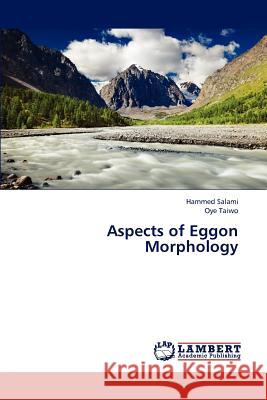Aspects of Eggon Morphology » książka
Aspects of Eggon Morphology
ISBN-13: 9783838322568 / Angielski / Miękka / 2012 / 120 str.
The search for universality of grammar has been a major preoccupation of modern linguistic enquiries. To do this, effort is geared towards exploring grammars of particular languages with a view to accounting for the shared properties of human language and the parameterized variations in different language. The need for this calls for the description of various aspects of as many human languages as there are on earth. This book Aspects of Eggon Morphology gives a detailed account of the internal structure of Eggon words across various lexical and grammatical categories as well as accounting for the rules and processes of word formation in the language, loan words inclusive. The book provides a good reference point for scholars, and native speakers alike, who are keenly interested in advancing their knowledge of the morphology of Eggon as it answers so many questions that could interest such groups. It is our hope that the book will prove highly beneficial to linguists, language specialists, researchers, native speakers of Eggon as well as Languages and Linguistics Departments of universities all over the world.
The search for universality of grammar has been a major preoccupation of modern linguistic enquiries. To do this, effort is geared towards exploring grammars of particular languages with a view to accounting for the shared properties of human language and the parameterized variations in different language. The need for this calls for the description of various aspects of as many human languages as there are on earth. This book Aspects of Eggon Morphology gives a detailed account of the internal structure of Eggon words across various lexical and grammatical categories as well as accounting for the rules and processes of word formation in the language, loan words inclusive. The book provides a good reference point for scholars, and native speakers alike, who are keenly interested in advancing their knowledge of the morphology of Eggon as it answers so many questions that could interest such groups. It is our hope that the book will prove highly beneficial to linguists, language specialists, researchers, native speakers of Eggon as well as Languages and Linguistics Departments of universities all over the world.











